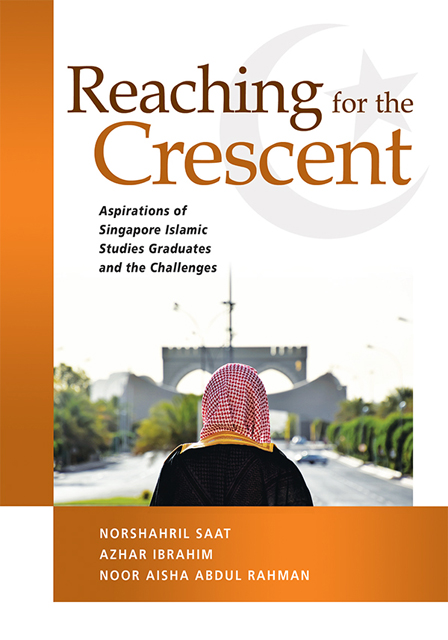Book contents
- Frontmatter
- Contents
- Preface
- Abbreviations and Acronyms
- A Note on Translation, Spelling and Other Conventions
- 1 Introduction
- 2 Overview of Islamic Studies and Mode of Thinking
- 3 Singapore Islamic Studies Graduates: Learning Experience and Struggles
- 4 Current Islamic Studies Undergraduates: Navigating Uncharted Pathways
- 5 Challenges, Genesis and Prospects for Development
- 6 Religious Education, Dominant Religious Orientations and Their Impact
- 7 Conclusion
- 8 Bibliography
- Index
- About the Authors
1 - Introduction
Published online by Cambridge University Press: 01 September 2023
- Frontmatter
- Contents
- Preface
- Abbreviations and Acronyms
- A Note on Translation, Spelling and Other Conventions
- 1 Introduction
- 2 Overview of Islamic Studies and Mode of Thinking
- 3 Singapore Islamic Studies Graduates: Learning Experience and Struggles
- 4 Current Islamic Studies Undergraduates: Navigating Uncharted Pathways
- 5 Challenges, Genesis and Prospects for Development
- 6 Religious Education, Dominant Religious Orientations and Their Impact
- 7 Conclusion
- 8 Bibliography
- Index
- About the Authors
Summary
Singapore’s religious studies graduates form a significant component of asatizah, a term which in the context of Singapore’s contemporary Muslim community generally refers not only to those who teach religion (also known as ustaz for males or ustazah for females), but also those who have undergone a degree of formal training in religious schools. So broad is the usage of the term today that it also includes those with religious studies background but whose sources of livelihood are not necessarily in teaching religion but involve other professions which may or may not have anything to do with religious services or education. In the past, it was not uncommon for asatizah not to have acquired formal religious training to teach religion. Their socialization into religious education was informal based on devotion to the teachings of a spiritual master. The prominent ones amongst them are cherished and revered by the community. Others received religious education in one of the full-time madrasahs (Islamic schools) or part-time classes run by mosques or privately run religious schools, such as Bustanul Arifin (formed in 1946 but closed in the mid-1990s) and Sekolah Ugama Radin Mas (tahfiz or Quranic memorization schools founded in 1956).
Given that the values of Islam touch the lives of Muslims on many fronts, asatizah generally exert strong influence in the religious life of the community and form the major social group that shapes religious thought, beliefs and orientations. As the ethical teachings of Islam underline all aspects of life, their influence is wide-ranging, covering areas beyond matters of worship and faith. Though the advancement of technology has facilitated the possibility of accessing religious instruction and teachings globally via new media platforms, this development has not displaced the significance of the local asatizah who continue to play an influential role in shaping religious thought and understanding through teaching and other religious services they conduct.
Some amongst them are considered as ulama based on their contributions to scholarship in matters pertaining to religion.
- Type
- Chapter
- Information
- Reaching for the CrescentAspirations of Singapore Islamic Studies Graduates and the Challenges, pp. 1 - 19Publisher: ISEAS–Yusof Ishak InstituteFirst published in: 2023

